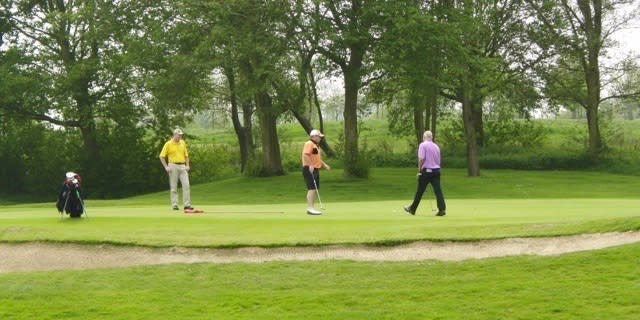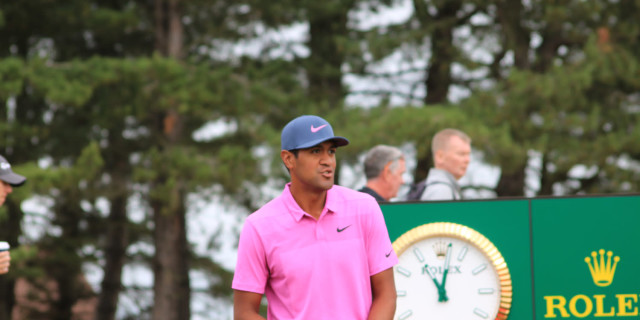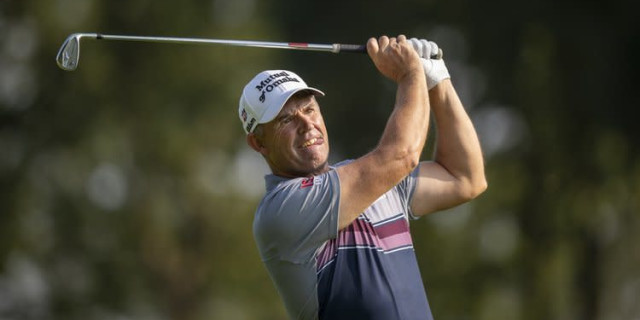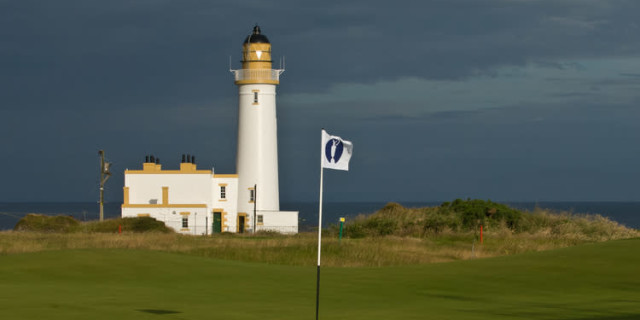
What Causes Slow Play on The Golf Course
Our recent survey looking at pace of play most certainly exercised your minds and most definitely polarised opinion.
It is an issue that continually raises its head when people are talking about their experiences in the clubhouse.
Funnily enough, after a recent stableford pairs competition during which the average time to play 18 holes was five hours, my own seniors club committee is now looking at ways of speeding up play.
There are lots of reasons for this funereal pace of play - people carrying on playing when they could no longer score, people failing to hit provisional balls when hitting drives into trees and thick rough and, most common of all, people taking far longer than three minutes to look for lost balls.
And what on earth happened to the concept of ready golf?
The key findings in our survey were eye-opening.
For starters, 58% of you said that you felt the pace of play has slowed in the past five years, with 19% unsure and just 23% stating no. It is interesting to note that this ties in with the increased numbers playing golf after the end of the Covid pandemic, when most golf clubs saw a huge increase in new members.
It came as no surprise to me to discover that an astonishing 48% of those who responded to our survey have walked off the course because of the pace of play. I have done it myself, most recently when it took myself and two playing partners almost three hours to play nine holes. It didn’t help that we had a five-ball playing two groups in front of us! There are times when I despair at how little understanding some people seem to have of golf’s etiquette. What was worse was that nobody challenged this group to tell them they should have been playing as a two-ball and a three-ball.
According to your feedback, the average round of golf now takes four-and-a-half hours. When you take into account the time it takes to get to and from the course, together with, say, an hour in the clubhouse after your game it means you could be out of the house for between six and seven hours. By anybody’s standards, that is simply far too long.
Your comments were illuminating.
One of you reported: "In the early 1950s, at Dalmahoy East Course, there was a notice saying that any member taking more than two and three quarter hours to complete a round, would be reported to the Secretary.”
I have been playing this game for longer than I care to admit and I can tell you that when I first learnt to play it was made clear to me that anything longer than three hours was unacceptable. I was also expected to learn the rules and fully understand our sport’s etiquette.
I have always believed that you should be aware of what is happening around you and that if you are playing in a group that is holding up the players behind you then you should wave them through.

(Image Credit: Kevin Diss Photography)
So what causes slow play?
Apart from the problems outlined above, you had plenty to say on this subject.
Courses Are Too Busy
Many of you believe that courses are simply too busy.
"Clubs need income to maintain and develop the course, which can lead to them exceeding the capacity of the course.”
"How can you speed up play if more people are playing golf? If more people are playing golf, that means more newcomers, less experience and higher handicap. Maybe in general, people have become less tolerant and more impatient.”
Tour Pros Are to Blame
Some of you blame tour professionals.
"Mainly the problem is with the pros. The pace of play on tour is a disgrace and that in turn influences younger players."
Our survey actually clearly showed that only a tiny minority of you are influenced by what tour pros do in terms of pre-shot routines, etc.
Many of you agree with my assertion that etiquette is largely ignored.
Bad Etiquette
"The usual problems of slow play are generally brought about by players not getting on with it. Leaving clubs/trolleys in the wrong place, everyone looking for a partner's ball instead of playing theirs first."
"Some individuals playing the game nowadays have no concept of where they are on the golf course. They stand there and watch others play their shot when they could walk to their own ball, put bags and trolleys in the wrong place when on the greens, fail to hit provisional ball when the first one is in deep rough and then look for it for 10 minutes."
"There are individual, elite players, men, seniors, ladies, and juniors who 'play at a certain pace', that is their style of play, and little can be done to change their pace of play."
But not everybody hates slow play. And, of course, there are often good reasons why some individuals take so long.
"Golf shouldn't be a race, it is a sport that should be enjoyed. Consideration should be given to less mobile people playing."
There are plenty of other issues that polarise opinion.
Use of Technology
Increasing numbers of golfers of all abilities now use range finders. These should speed up play but there is little evidence that this happens. Whatever happened to gauging your distance from the 150-yard markers?
Tee Time Intervals
Should courses be looking at the intervals between matches. My own club sends games out in eight-minute intervals - is that long enough? Some would say it is not.
Are Courses Too Challenging?
It stands to reason that if a club opts to grow the rough then members are going to have to accept that the pace of play will suffer because players will be spending more time looking for golf balls. Greenkeepers have a difficult balancing act to perform here. Most of us want courses that are challenging but not impossibly difficult.
Poor Signage at Courses
Some clubs also need to turn their attention to signage. I have played two courses as a visitor this year that failed miserably on this score. How difficult, or expensive, is it to install signs pointing the way to the next tee? It is not rocket science. You do not want visitors wandering aimlessly around your course looking for the next hole, so help them out.
Lack of Course Marshalls
All of the above could be solved if courses had marshalls out on the course but this is an expense that most clubs simply cannot afford.
The World Handicap System
You will not be surprised to discover that many of our respondents took aim at the WHS.
"I cannot understand why when everyone wanted fast rounds the WHS decided to raise the maximum handicap to 54. It is illogical."
"We should drop the highest handicap from 54 to 36. This has an enormous impact on pace of play."
"Scrap the WHS system and return to a maximum for 28 for men and 36 for women. So many players receive up to three shots on some holes, so if you can't beat double bogey, pick up."
This is an interesting one. If you scrap the maximum 54 handicap it does not follow that people who play to this standard will stop playing. And why should they?
The thing that stands out for me in all of this is that it is abundantly clear that there are no easy solutions. Maybe we are just going to have to live with slow play.
Related Content
Does Slow Play Make Pro Golf Unwatchable
How Long Should a Round of Golf Take
Tags: slow play Pace of Play industry insider GOLFERS Golf daily picks









